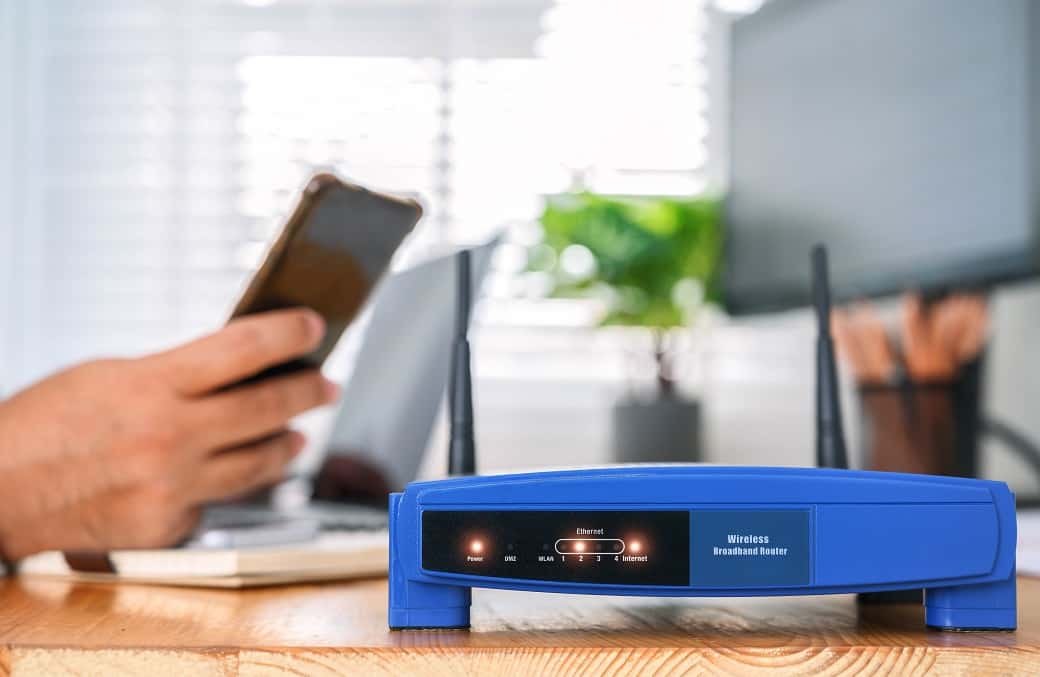Are you confused about the difference between a router and a modem? You’re not alone. Many people use these terms interchangeably, but they are actually two distinct devices with different functions. If you’ve ever wondered how these gadgets work together to bring the internet into your home, then you’ve come to the right place. In this post, we’ll dive deep into the world of routers and modems, exploring their individual roles and shedding light on their unique features. By the end of this article, you’ll have a clear understanding of the differences between these two essential components of your home network. So, let’s get started and unravel the mystery of the router vs modem debate.
Router vs Modem: What are they?
When it comes to setting up an internet connection, two devices play a crucial role: the router and the modem. Although often used interchangeably, these devices serve different purposes and understanding their functions can help you optimize your internet experience. Even more confusing, some devices can act as both a router and a modem!
What is a Router?
A router acts as the central hub of your home network. It allows multiple devices to connect to the internet simultaneously and enables communication between devices within the network. Think of a router as a traffic cop directing data packets to the right destinations. It creates a local network, assigns IP addresses to connected devices, and manages data flow.
What is a Modem?
On the other hand, a modem, short for modulator-demodulator, is responsible for establishing a connection between your home network and your internet service provider (ISP). It converts the signals from your ISP into a format that your devices can understand and vice versa. Essentially, the modem translates the data received from your ISP into a language that your router and devices can interpret.
So, in a nutshell, while a router handles the traffic within your home network, a modem connects your network to the internet. Both devices are essential for a smooth and reliable internet connection, and understanding their roles can help you troubleshoot any connectivity issues you may encounter.
Router vs Modem – Which do I need?
When setting up your home network, you’ll need both a router and a modem. Make sure to choose devices that are compatible with your ISP and meet your specific needs. With the right equipment, you’ll be able to enjoy fast and reliable internet access throughout your home.
Some modems that are provided by ISP’s have the ability to also act as a router and a Wifi network access point. Combined devices like this are great for small networks like the one found in your home. They make your network easier to manage and maintain since there is only one device.
FAQ
Do I need both a router and a modem for my internet connection?
Yes, you will need both a router and a modem for your internet connection. While they are often bundled together in a single device, they serve different functions. The modem connects your home to your internet service provider (ISP) and converts the signals from your ISP into a format that your devices can understand. On the other hand, the router directs the internet traffic within your home, allowing multiple devices to connect to the internet and communicate with one another. So, while the modem brings the internet to your home, the router ensures that it is distributed efficiently to all your devices.
Can I use a router without a modem?
Yes, you can use a router without a modem. A router’s main task is to route traffic around a network ( or multiple networks ). Larger computer networks or computer networks with multiple networks connected together use a router to manage all of the traffic and the rules for what traffic goes where. That said, you would still need some sort of modem for translating your ISP’s connection to something your network devices will understand.
Can I use a modem without a router?
Yes, you can use a modem without a router. However, we really don’t recommend this route. Routers are responsible for controlling the flow of traffic on your network. Without a router, your network would be severely restricted and missing key services like DHCP that make having a home network easy.
Can I connect multiple devices to a modem?
Yes, if you use your modem with a router you can connect multiple devices to it. Stand alone modems usually only have one ethernet port for connecting a device to it. So unless your modem also has router functionality, you would need to use a stand alone router with your modem to give it the ability to connect to multiple devices.
Can I connect multiple devices to a router?
Yes, you can connect multiple devices to a router. A router is a networking device that allows you to create a network and route traffic around that network. They are designed for connecting multiple devices to them simultaneously.
Can a router replace a modem?
No, a router cannot replace a modem. While both devices are essential for setting up an internet connection, they serve different functions. A modem is responsible for connecting your home network to your Internet Service Provider (ISP), converting the internet signal from your ISP into a format that your devices can understand. On the other hand, a router acts as the central hub of your home network, allowing multiple devices to connect to the internet simultaneously and facilitating communication between them. So, while a router is an important component for distributing the internet connection within your home, it still requires a modem to establish the initial connection to your ISP. That said, some ISP’s will provide you with a device that can do dual duty as both a modem and a router.
What features should I look for in a router?
The features to look for in a router are:
- what wireless standard it uses
- network speed
- number of ethernet ports
- how easy it is to maintain and configure
- user reviews of the router – do other people like it!
Do routers and modems require regular updates or maintenance?
Yes, both routers and modems require regular updates and maintenance. While they serve different functions, they are both essential components of a home network and need to be kept up to date for optimal performance and security. It’s important to regularly check for these updates and install them to ensure your router and modem are secure and working properly.
In Summary
Thank you so much for taking the time to read our post about routers vs modems. We hope that we have clarified any confusion you may have had about these essential networking devices. Whether you’re a tech enthusiast or simply curious about how your internet connection works, understanding the difference between routers and modems is crucial in optimizing your internet experience. Don’t forget to check out our other blog posts for more informative content. Thank you again for your support, and we hope to see you back here soon!




